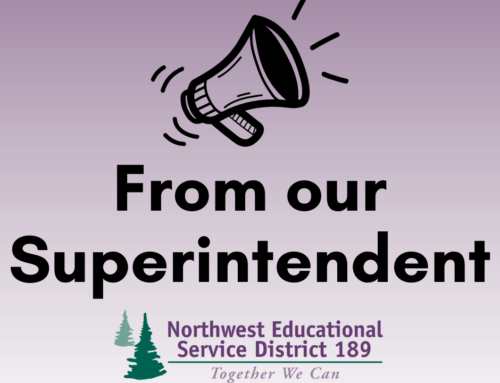Using strategies and practices you already know
While visiting with district and school leaders and educators I hear the recurring theme of overwhelming stress and burn-out amongst staff. Staff shortages, students and staff in quarantine, principals and colleagues covering classes in teacher absences, school flooding, closures, and politicized, divided communities are real challenges facing our regional educators this year. These circumstances, on top of the pressures and challenges of everyday education, create this concern and care for the well-being of teachers and principals.
As I listen, watch, and read I am reminded of some basic concepts of transformational leadership and effective schools. Strong leaders promote practices that include and value staff, students, and the community which supports our emotional well-being. Ensuring colleagues have voice and value and building relational trust with and among staff creates a school culture of learning and community. These principles are recognized practices and paradigms of effective school cultures and are more important to develop now than they have ever been before.
In Beth Holland’s article 3 Steps School Leaders Can Take to Support Teachers Right Now (Edutopia, November 5, 2021) she states that leaders must attend to the well-being of the adults in their school community. Substantial evidence from multiple academic studies indicates that teacher well-being influences students’ well-being as well as their academic performance.
This article reminded me that research and experience have proven these practices where educators (therefore students) can thrive, support, and energize. Holland offers three tangible ways to help build staff well-being in our schools as safe and instructional challenges increase.
A Learning Forward article discusses how leaders manage stress and stay focused. Although this article was written just before the pandemic – the observations are timeless and still key to the emotional well-being of educators and their students. Authors emphasize collaborative environments, authentic and shared-leadership, recognizing and addressing stressors, and practicing mindfulness.
Many repeated themes on the We Are Teachers website and in the article, We Need to DO More for Teachers Who are Exhausted, Stressed and Burnt-Out emphasize the five strategies of addressing teachers’ mental health.
As an experienced educator, I add these tried and true practices and paradigms:
- Relationships, relationships, relationships
- The article The Importance of Strong Relationships (The Educational Trust, March 2021) discusses strategies to address unfinished learning. The most powerful tool we have was emphasized in this work.
- ….with all of these stressors, teachers and students are trying to remain connected to schools and each other. Strong relationships among teachers and school staff can dramatically enhance students’ level of motivation and therefore promote learning.
- Greater Good In Education is a wealth of information and research with practical actionable ideas of building healthy schools and intentionally focusing on staff well-being
- Listen deeply, engage in conversation about important ideas facing your school community
- Take the time, build the skills. It will change your leadership relationships.
Additional resources
- Behavioral Health Impacts of COVID-19
Workplace Trends, Resources, and Strategies:
Disaster Cascade and Long-Term Recovery Management for Leaders
Powerpoint presented by Dr. Kira Mauseth, Behavioral Health Strike TeamWA Department of Health - Burnout, Compassion Fatigue, Moral Injury and Resilience in the Context of COVID-19
Recorded YouTube presentation March 12, 2021, provided by Dr. Kira Mauseth, Behavioral Health Strike TeamWA Department of Health




